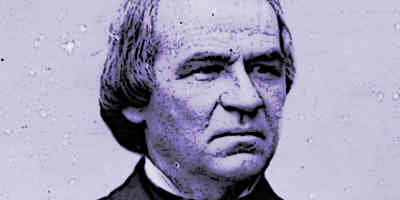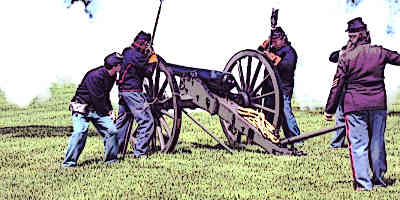Andrew Johnson’s Reconstruction Plan
Johnson was the first president to be impeached, and he was acquitted by one vote in his trial in the Senate.
Andrew Johnson will always be one of the most controversial presidents in American history, but it’s important to remember that he’s not simply a historical figure but someone who has left his mark on the nation in more ways than one.

For many, Johnson’s attempt to rebuild the country after the Civil War stands as his legacy above all else, and it can still teach us valuable lessons today.
Introduction
Andrew Johnson was vice president when Abraham Lincoln was assassinated. He took over as president and had a tough time trying to rebuild the country after it went through so much turmoil during the Civil War.
The Background of Andrew Johnson and the Civil War
Andrew Johnson came from an poor background, he was born in Raleigh North Caroline in 1808.
He had little formal education and became a tailor by trade, first in Tennessee and later in Greeneville, Tennessee. He served as mayor of Greeneville from 1834-1838.
In 1835 he married Eliza McCardle who would be his lifelong partner. They would eventually have five children. With some political help from Sam Houston, he obtained an appointment as a judge for the 4th Judicial District of Tennessee in 1841.
While serving as a district judge, Johnson enrolled in law school and earned a degree from Cumberland University Law School (now part of Samford University) in 1843 before being admitted to the bar.

Image of Old American Flag Civil War
The Passage of the Civil Rights Act of 1866
On April 9, 1866, Congress passed an act entitled An Act to protect all Persons in the United States in their Civil Rights, and furnish the Means of their Vindication which was signed by President Andrew Johnson on April 9.
The act grants African Americans full citizenship by declaring that they are American citizens and prohibits them from being denied equal protection under the law. It also outlaws discrimination in public accommodations, trains and ships.

The Impeachment of Andrew Johnson
The Senate failed twice to convict Johnson, and he served out his term. The impeachment question centered on Johnson’s violation of the Tenure of Office Act, passed over Lincoln’s veto in 1867. This act banned him from removing Cabinet secretaries without senatorial approval. The House of Representatives would come to impeach Johnson in the year 1868.
Conclusion
Andrew Johnson was not a popular president, impeached by the House of Representatives, but later acquitted by the Senate. His reconstruction plan caused much controversy and he served one term in office before being defeated by Ulysses S. Grant in 1869.
- American Civil War
- Abraham Lincoln Assassination
- American Civil War: 10 Surprising Facts
- Andrew Johnson’s Reconstruction Plan
- Battle of Fort Sumter (1861)
- Causes of the Civil War
- Civil War *Top 10 Events
- Civil War Battles
- Civil War Inventions and Technologies
- Emancipation Proclamation 1863
- Famous Generals of the Civil War
- Famous People of the Civil War
- Gettysburg Address 1863
- John Wilkes Booth: Lincoln’s Assassin
- Lee’s Surrender at Appomattox (1865)
- Sherman’s March to the Sea (1864)
- The Confederate States of America
- The Underground Railroad
- Top 10 Civil War Generals
- Union vs. Confederacy